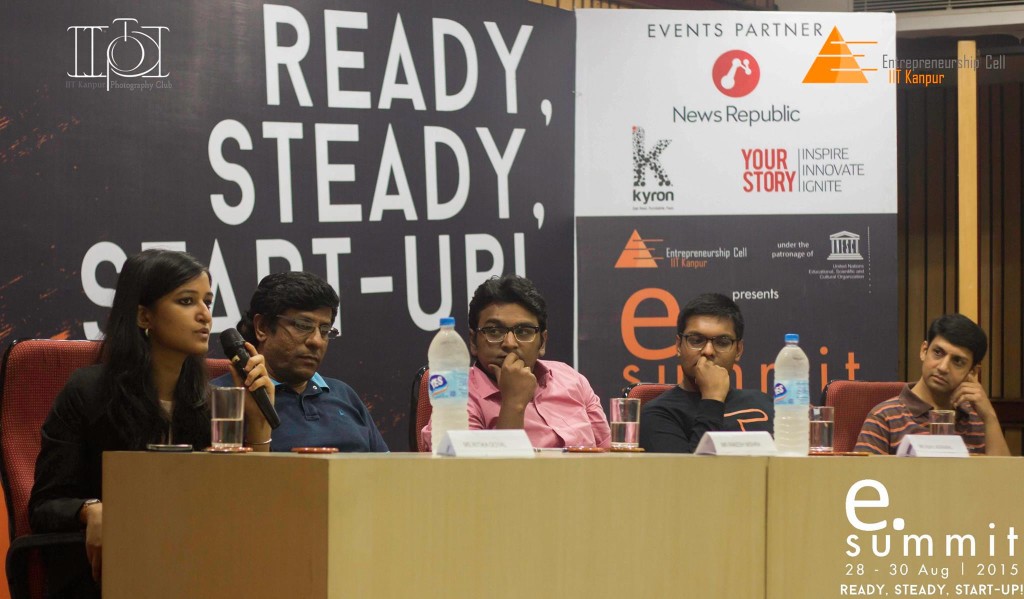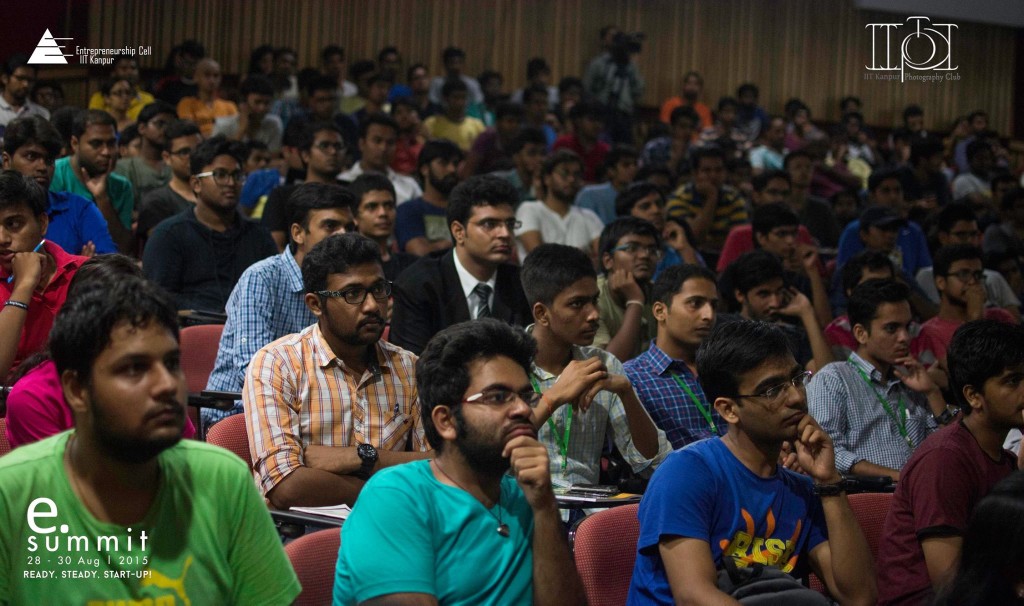A lot of us wonder whether it’s too late to venture into startups? We also wonder whether the Indian market is saturated or are we approaching a startup bubble? And most importantly, how are startups evaluated? In order to address these questions, the Entrepreneurship Cell, IIT Kanpur organised a Panel Discussion on “Astronomical Startup Valuations – The math behind those billions” as part of e-Summit ’15 on 29th August.
The panelist included Ritika Goyal-an investment executive with Matrix Partners, Chirag Kulkarni-the founder of an US based social media analytics firm Insightfully and Shesh Vasudevamurthy – director of product management with Groupon Asia-Pacific. The moderators for the discussion were Ashu Agrawal, director of Business World Accelerate and Rakesh Mishra, an alumnus of our institute and also the cofounder of Excubator.
The discussion kicked off with Ritika explaining the nuts and bolts behind startup valuation. Being an investment executive with Matrix Partners, a firm which has stakes in startups like TinyOwl, Ola and Practo to name a few, she stated that the ideal approach for valuation is a simple calculation based on the revenue and the growth rate of the startup. The fact that internet based startups, be it e-commerce or other internet enabled services are often valued much higher than other startups can be explained in terms of their significantly higher growth.
Panel discussion in full swing
However, valuation of startups have become more of an art rather than a science due to unavailability of actual data. When we talk about seed funding, it depends more on the negotiation between the investor and startup than strictly following the conventional approach.
For an example, a Venture Capitalist firm buys 10% stake of a startup for say $20 million, the valuation would be simply based on the fact that, if 10% of the company is worth $20 million, then 100% of the company would be valued at $200 million.
Shesh brought up the fact that a lot of startups are valued on the basis of their growth potential, especially if they are venturing into an untapped market. Though it is not necessary that the startup generates revenue right from the start but if it manages to dominate its market, a revenue model can easily be implemented and this gives investors the opportunity for a steady exit later on.
An example would be the app based taxi services such as Uber, Ola etc where dominating the market primarily means winning over drivers by means of various incentives, thereby resulting in a larger network of drivers and hence better services.
Chirag added that a lot of online startups undergo evaluation though they are not generating any revenue. This could be explained in terms of the growth potential of the company and also the number of users it has been able to reach on a monthly basis. Such companies could be valued by the number of unique users. For example, if a website has about 30000 unique visitors a month and let’s say we value them at $3 per user, the company would then end up with a valuation of about $90,000 in addition to the growth potential of the company.
Chirag and Ritika went on to explain how the valuation of social media based startups are slightly more challenging than e-commerce startups, primarily due to the difference in their revenue models.
One of the interesting questions brought up during the discussion by the audience was whether we are approaching a startup bubble in India.
eSummit witnessing jam packed events and intent audience
Ritika drew an analogy that in India, it is more of a froth rather than a bubble in the sense that all of the VC investments do not disappear in a shot. In India, there are only a few companies that have reached the billion dollar mark. When you compare this to a country like China, where over the last few years, a significantly higher number of companies were able to reach the billion dollar mark, the fact that there is a lot of potential in Indian markets is outlined, especially in the untapped sector.
All our panelists agreed on the fact that if a startup has a growth rate of above 30% or perhaps manages to break into the market, especially an untapped one with huge potentials, funding would be a lot easier. They also mentioned that entrepreneurs should not begin their startups with the aim of acquiring some funding, rather they should do it to follow their passion.
Written by Tony K. John








































